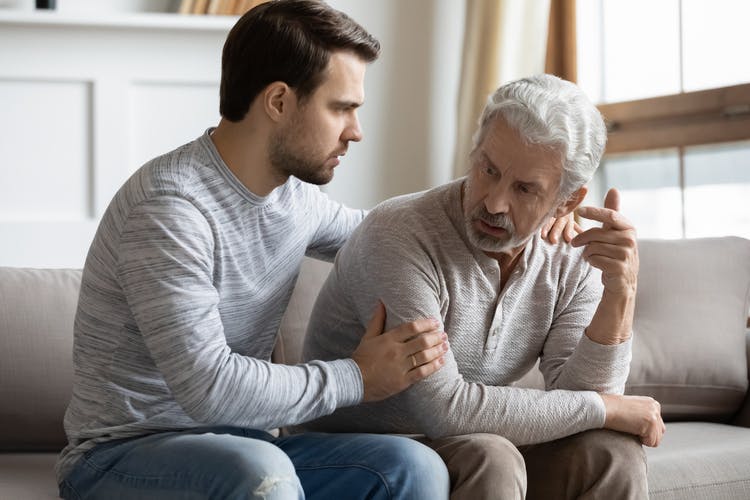4 Min Read
Stroke Awareness: Signs, Risk Factors, Treatment, and Prevention

Stroke is one of the most serious medical events that can happen to you or a senior loved one. It is the fourth leading cause of death in the United States despite increased awareness by doctors, organizations, and public health departments. This is perhaps because many of the risk factors for stroke—such as high blood pressure or being overweight—can be caused by symptoms common with aging. While a stroke may last only a few minutes, acting quickly and seeking medical treatment can make the difference between a full recovery, a short or long-term disability, or death.
A stroke is a brain attack, which happens when blood flow to your brain stops. Your brain depends on a constant supply of oxygen and nutrients from your blood. If this supply stops for even a few minutes, brain cells will die, often resulting in irreversible brain damage or death. Chronic conditions, lifestyle habits and choices, and hereditary factors significantly contribute to your risk of having a stroke.
There are two types of strokes. Ischemic strokes are the most common. This type of stroke occurs when a major blood vessel to the brain is blocked by a blood clot (thrombosis), the movement of a clot to the brain (embolism), or the severe narrowing of an artery (stenosis) in or leading to the brain caused by the buildup of fatty deposits called plaque. The second major type of stroke is a hemorrhagic stroke, when a broken blood vessel causes bleeding in the brain.
One well-known type of hemorrhagic stroke—a transient ischemic attack (TIA)—may only last for minutes. However, this “mini-stroke” can be followed by repeated strokes within hours or days if not treated immediately. With this stroke in particular, the patient can significantly benefit from receiving tissue-plasminogen activator (t-PA) drugs within three hours of the stroke for recovery. Therefore, you must get yourself or your loved one to the hospital as soon as possible for evaluation and treatment.
Remember F.A.S.T. for recognizing the signs and symptoms of a stroke:
Face drooping. Arm weakness. Speech difficulty. Time to call 9-1-1 IMMEDIATELY.
The Signs and Symptoms of a Stroke:
- Sudden numbness or weakness in the face, arm, or leg, particularly on one side of the body
- Sudden confusion, difficulty speaking, or understanding
- Sudden problems seeing in one or both eyes
- Sudden dizziness, loss of balance or coordination, or trouble walking
- Sudden severe headache without a known cause
- Double vision, drowsiness, nausea, or vomiting
If you or a loved one experiences a stroke, assisted living facilities like Grand Oaks can provide short-term Respite Care stays that allow you to recover in a safe, convenient, and pleasant home-like setting. Physical and occupational therapy are offered on-site in residents’ apartments by licensed, caring specialists from Legacy Healthcare. Once recovered from a stroke, many seniors decide to permanently reside at Grand Oaks because of the many advantages and enjoyable social interactions that an independent living community can offer.
Lowering your risk factors for a stroke should be part of your long-term plan, especially if you have experienced a stroke. It’s important to talk with your doctor or healthcare provider about these crucial stroke prevention tips:
- Control your blood pressure, cholesterol, and diabetes
- Stop smoking and limit alcohol use
- Eat healthy foods, exercise regularly, and maintain a healthy weight
- Get regular scans and checkups to see if your arteries could be clogged and to maintain overall cardiovascular health
- Ask your doctor if you should take certain medications, such as anticoagulants, antiplatelets, or blood pressure or cholesterol-lowering drugs
Understanding the signs and symptoms of a stroke can save your or your loved one’s life. Following healthy lifestyle habits and learning stroke prevention tips are critical to improving your overall health and longevity.

0 Comments